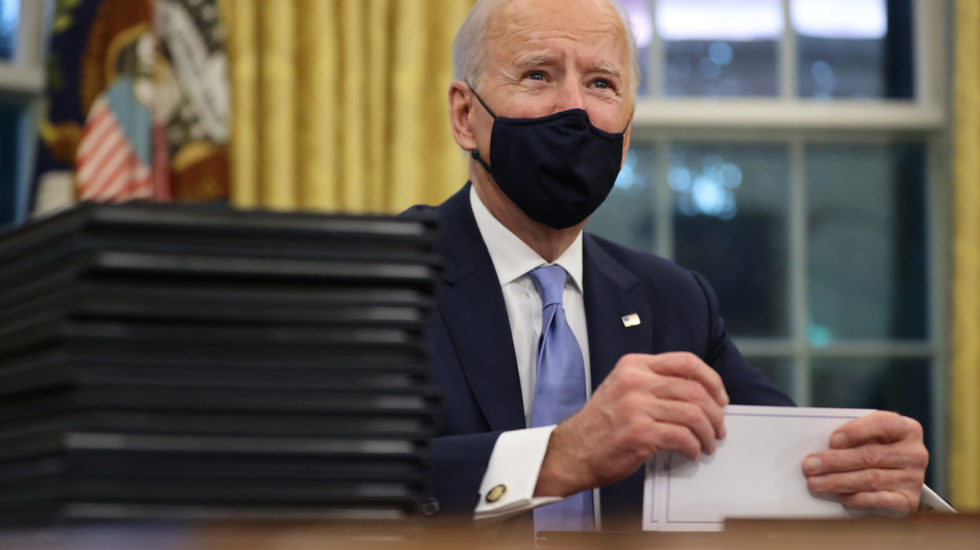President Biden has ordered the distribution of millions of face masks to under-served Americans to blunt the spead of the Covid-19 coronavirus, the White House said on Wednesday.
“Not all Americans are wearing masks regularly, not all have access, and not all masks are equal,” White House Covid-19 coordinator Jeff Zients told reporters, adding that the president wants to “level the playing field” for at-risk Americans.
The plan, involving the Departments of Defense, Agriculture and Health and Human Services, is to pass out more than 25 million cloth masks made in America, starting in March. The program will continue through May and cost $86 million, the White House says.
The masks, in packs of two and sizes for both children and adults, are expected to reach 12 to 15 million Americans, via about 1,300 community health centers and some 60,000 food banks, pantries and soup kitchens.
The free masks are not the much-publicized N95 type, which are now widely available for sale, but “quality, well-fitted masks” that can be washed for re-use, the White House says.
“Biden has asked all Americans to wear face masks for the first 100 days of his term, pointing to models showing it could help save 50,000 lives,” reports the Associated Press. “He also required mask-wearing in federal buildings and on public transportation in an effort to slow the spread of the virus.”
Biden wears a mask nearly all the time when in public, removing it only to speak, and his example appears to have encouraged many people to follow suit.
In a Quinnipiac poll conducted late last month, three-quarters of Americans said they wear a mask all the time when they go out in public and are around others; another 12% said they wear a mask “most of the time,” the AP says.
“Still, the White House’s action does not include a plan to address resistance from some communities to wear a mask, even when one is available,” notes NBC News.
An earlier, alternative plan to send masks to all Americans was set aside in favor of “a more targeted approach to lower-income communities” as being “a better step at this point in the pandemic,” NBC says.



